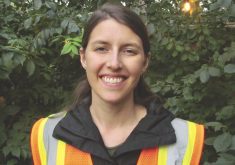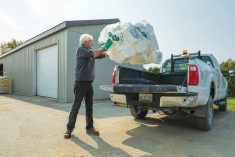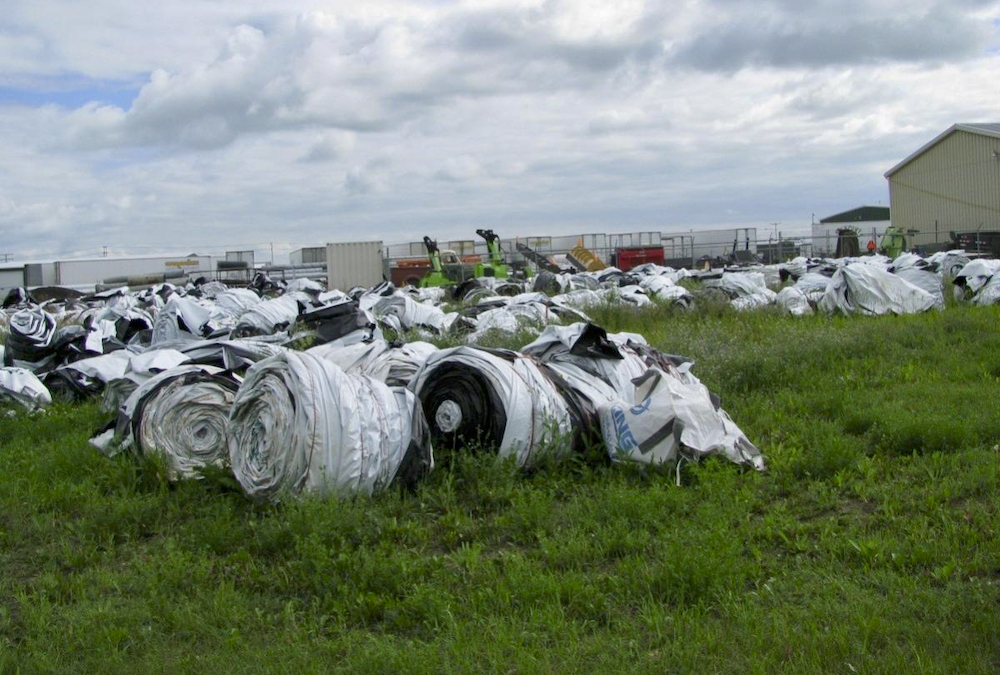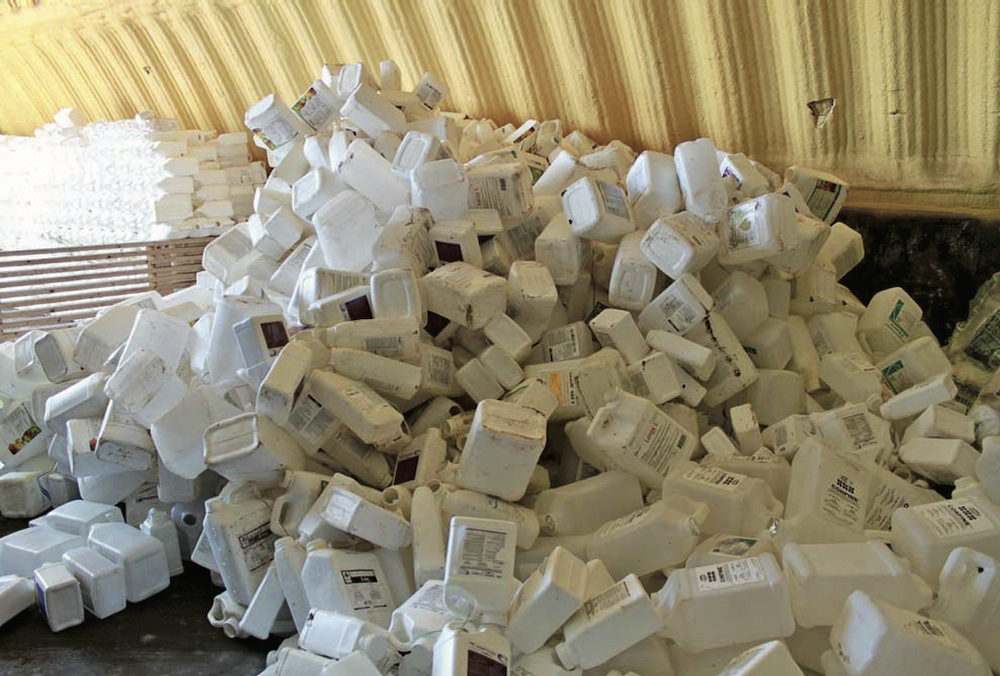Manitoba farmers recycled nearly double the ag plastics in 2021 compared to the year before, the recent Cleanfarms annual report says.
“Cleanfarms can celebrate 2021 as a year where we hit the high water mark virtually across the entire spectrum of all we do to advance sustainability in agriculture,” wrote executive director Barry Friesen and board chair Boyd Bergstrom in the report, released May 19.
Why it matters: Cleanfarms is a national non-profit focused on recycling and sustainable management of agricultural waste. In Manitoba, recycling programs cover seed bags and totes, drums, small plastic containers, twine, grain bags and unwanted pesticides or livestock medications. A pilot program with the Dairy Farmers of Canada also extends to silage plastics in southern Manitoba.
Read Also
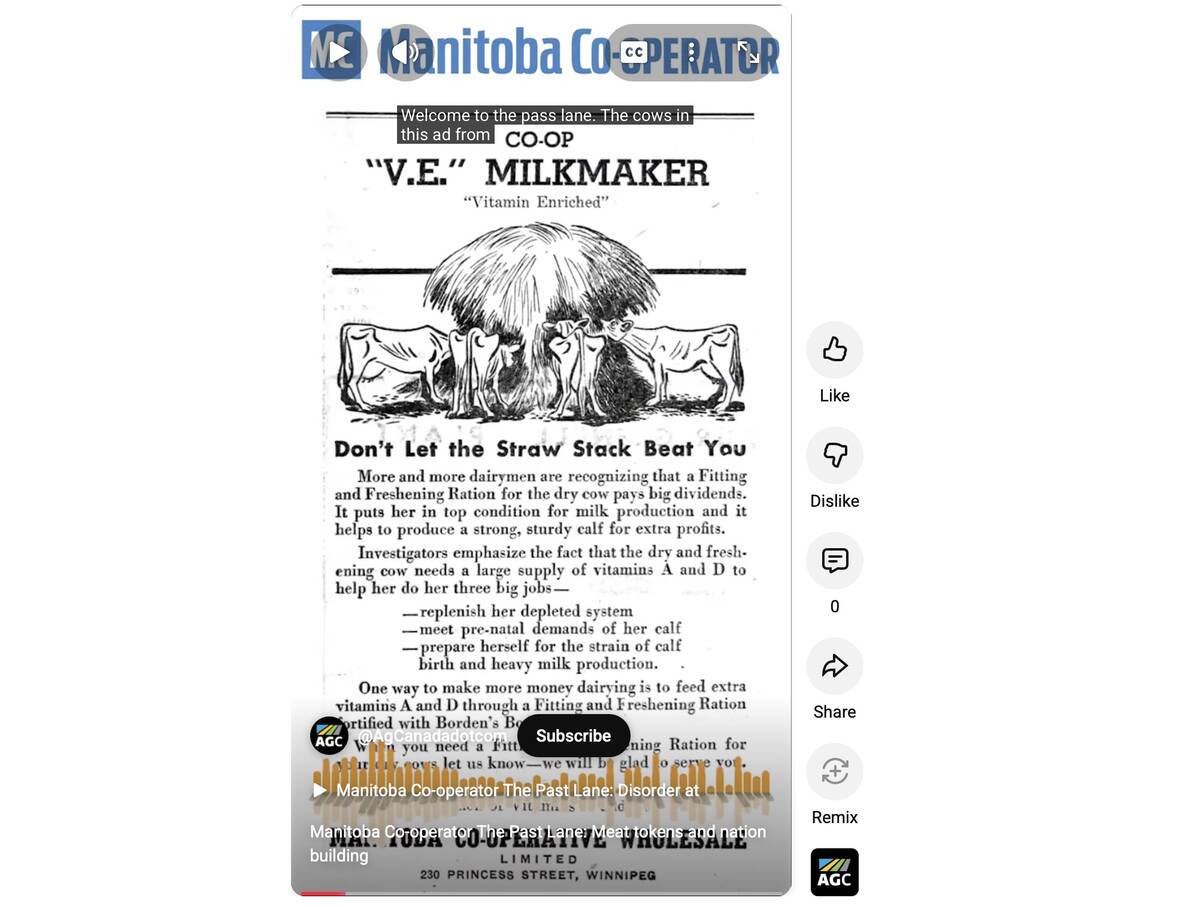
VIDEO: Manitoba’s Past Lane – Jan. 31
Manitoba, 1946 — Post-war rations for both people and cows: The latest look back at over a century of the Manitoba Co-operator
Cleanfarms collected 76 tonnes of grain bags, bale and silage wrap, and baler twine in Manitoba in 2021 — up from 38.4 tonnes in 2020. Clean- farms collected 51 tonnes of ag plastics in 2019.
Cleanfarms also collected 13,000 kilograms (kg) of seed, pesticide and inoculant bags as part of a pilot program collecting those items, the organization’s 2021 annual report says.
In 2021, Cleanfarms’ grain bags and baler twine collection program was made permanent and industry funded. Previously it was running on a pilot basis and funded by the province.
Across Canada, Cleanfarms collected more than 6.2 million small containers like pesticide and fertilizer jugs, up nearly 13 per cent from 2020.
Farmers also recycled about 71,000 bulk containers, including 4,000 in Manitoba.
Over 520,000 kg of seed, pesticide and fertilizer bags were collected across Canada.
“Across the range of materials collected coast to coast, the amounts collected reached record levels,” the report says.
“This is a credit to ag retailers, distributors and municipalities that worked especially hard to offer more convenient access to Cleanfarms’ recycling and ag waste management programs,” the report added, “and it is a tribute to farmers who participated in increasing numbers.”
Plastics are sometimes processed into flakes or pellets, which can be turned into new plastic products. For instance, Modix Plastique in Quebec turns hay and silage wrap into pellets that can be made into garden furniture and industrial pipes, according to the Cleanfarms report.
Maxi-Drain, also based in Quebec, turns fertilizer and pesticide jugs into drainage tiles.



